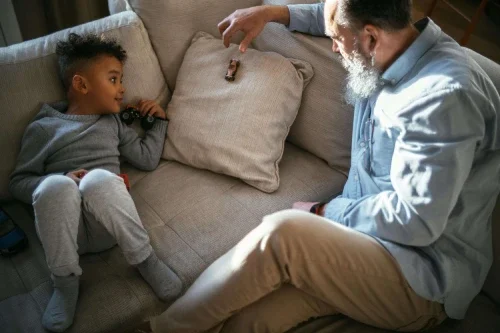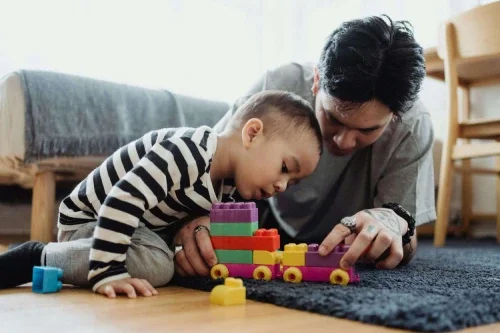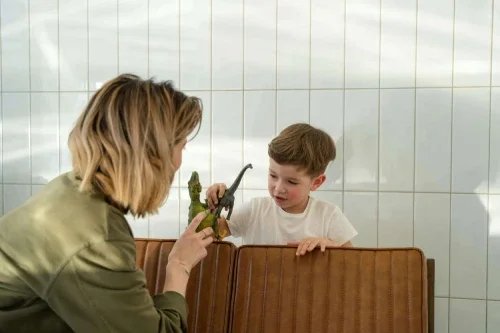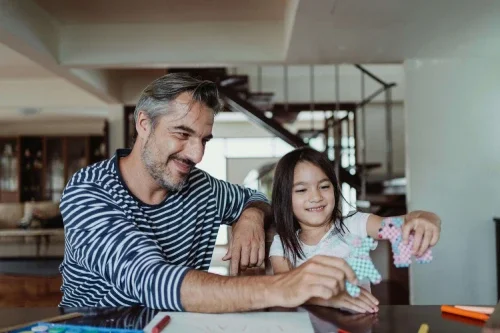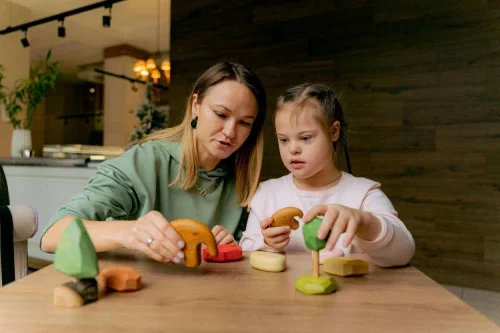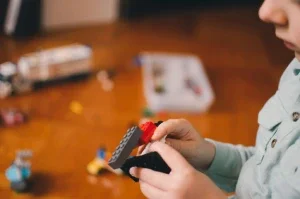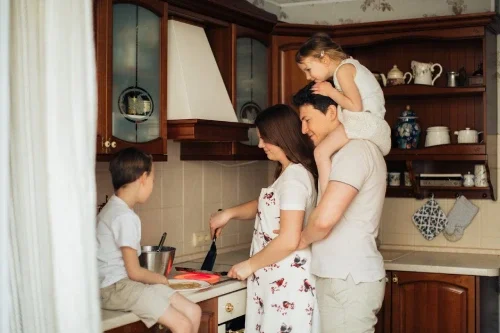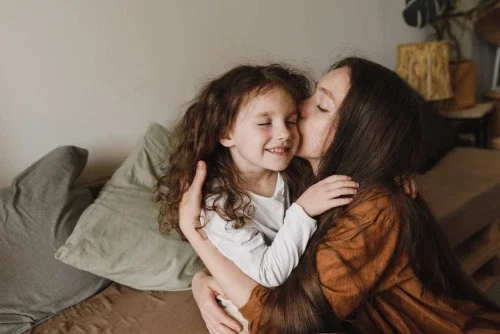
Blog
Directive vs. Non-Directive Play Therapy: What's the Difference?
While verbal processing comes naturally to most adults, children often express their deepest concerns, fears, and experiences through the universal language of play.
How to Pick the Best Therapeutic Options for Your Anxious Child
Traditional talk therapy and play therapy both aim to help children work through anxiety, but they take very different paths to get there. Think of it this way: if anxiety is a locked door, talk therapy uses conversation as the key, while play therapy uses toys, games, and creative expression to unlock that same door.
Understanding the Role of Play Therapy in Supporting Children's Recovery
When children experience overwhelming situations, whether it's trauma, extended hospital stays, medical procedures, or abuse, they often lack the words to express the complex emotions swirling inside them.
Play Therapy vs. Traditional Talk Therapy
Choosing the right type of therapy for your child can feel overwhelming, especially when you're faced with different approaches. As a parent, you want to make sure you're picking a method that will truly help your child's emotional and psychological well-being.
How Play Therapy Works: The Science Behind the Fun
Play isn't just fun and games for kids; it's a crucial emotional outlet. Through play, children can be creative, adapt to changes, solve problems, and connect with others.
The Power of Play: How Play Therapy Can Help Heal Children
Children often lack the vocabulary and abstract reasoning skills needed to express complex emotions verbally. Instead, they communicate through play, which is their natural language.
What Is Play Therapy?
Play therapy is a psychotherapeutic approach designed primarily for children aged 2 to 13, enabling them to explore their world and convey emotions through play.
How to Prevent the Enmeshment Cycle
Enmeshment describes a relationship dynamic in which boundaries become blurred and people become overly reliant on each other. Often seen in families, this lack of clear separation can lead to a diminished sense of self, stifled independence, and sometimes even chronic anxiety or resentment.
The Necessity of Consistent Parenting for Child Development
Parenting is a journey filled with challenges, growth, and learning for both the parent and the child. Every family's path is different, but there is one crucial component for healthy development: consistency.
6 Ways to Set Boundaries as Co-Parents
Going through a divorce is never easy, and when kids are involved, it adds a whole new layer of complexity. Once your divorce is finalized, with child support and custody agreements in place, it's time to embark on the journey of co-parenting with your ex.
Which Is Harder, Parenting Toddlers or Teenagers?
A lot of parents breathe a sigh of relief when their kids are finally out of the toddler stage! However, don’t relax too soon; a similar stage is just around the corner.
Children and Communication: Fostering Effective Expressions from a Young Age
Communication is a crucial life skill that is important for healthy development. For children, communication is needed to express thoughts, build relationships, and navigate the world confidently.
What Is Play Therapy And How Can It Help My Child?
Play therapy is for children who have problems communicating their troubles with their parents. Play Therapy International says that 71% of children experience a positive change through play therapy.


